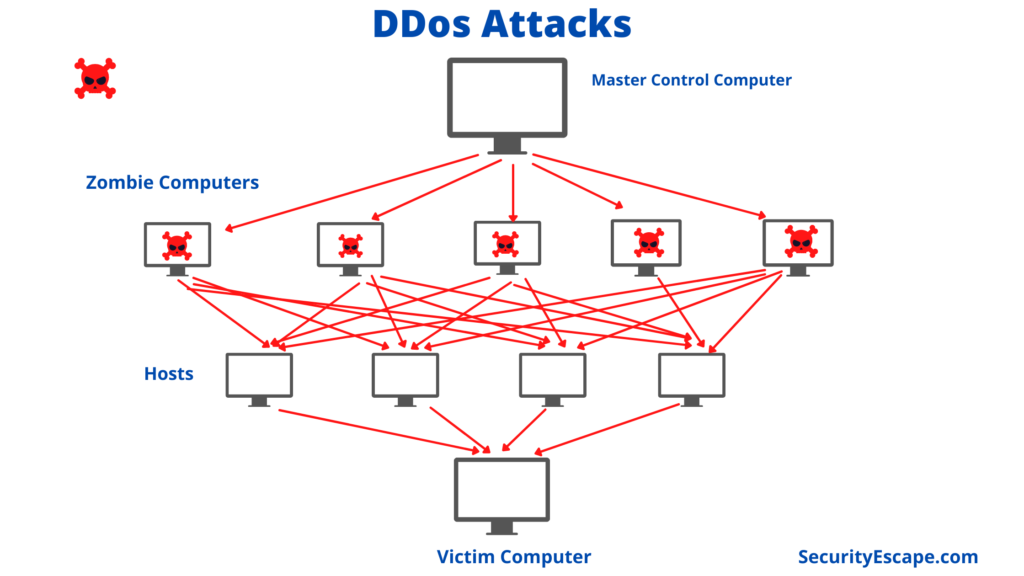
There are many ways a hacker finds loopholes in servers and tries to send malicious attacks like phishing, spoofing, and others to gain unauthorised access to your website and steal or alter your protected website data.
If your website runs on VPS Hosting, you must secure your hosting servers.
There are some key ways you can enhance your server security. You must follow those ways to stay ahead of hackers and maintain your website without any fear of hacking.
Most VPS Australia websites practise these steps to ensure their server security.
Also, if you want to buy Domain Name and Hosting, check out different VPS Hosting in Australia, where different hosting providers have different plans that might fit your needs.
Let’s learn more.
Major Technical Tips to Secure VPS from DDoS Attacks
These are the major tips you must do right away to protect your VPS server.
- Disable Root Logins
Prevent brute-force attacks by disabling logins from the root user. Create alternative usernames with the privilege to execute root-level commands.
- Change the Default SSH Port
Modify the default SSH port (22) to access your virtual server. This step helps prevent hackers from efficiently targeting your website.
- Start Using SSH Keys
Utilise SSH keys generated by your computer instead of passwords to log in to your SSH account. SSH keys are longer and more complex, enhancing security.
- Use SFTP instead of FTP
Secure file transfers using FTP over SSH or SFTP, as FTP connections lack encryption and are susceptible to sniffing attacks.
- Set up a VPN for Your VPS
Protect your data while using public connections by establishing a Virtual Private Network (VPN) to mitigate security risks.
Basics Tips to Secure Your VPS Hosting Server from DDoS Attacks
These are the common tips to keep in mind for protecting your VPS server from any DDoS attacks.
- Research Your Web Hosting Security
Ensure your hosting provider offers a strong infrastructure and additional server protection, such as advanced security modules like mod_security, firewall, Suhosin PHP hardening, and PHP open_basedir protection.
- Use Strong Passwords
Create strong passwords with lowercase and uppercase letters, numbers, and special characters. Avoid using standard information or personal details as passwords to reduce vulnerability to brute-force attacks.
- Set Up an Internal Firewall
Establish an internal firewall to filter incoming and outgoing data packets, safeguarding your website from unwanted traffic and DDoS attacks.
- Install an Antivirus
Strengthen security of your virtual server by installing antivirus software, which helps detect and eliminate potential threats from your VPS.
- Review User Rights and Disable IPv6
Regularly review and manage user rights to prevent unauthorised access. If you’re not actively using IPv6, it’s recommended to disable it to avoid exposing vulnerabilities.
- Monitor Server Logs
Keep track of server logs to stay informed about your VPS hosting’s activities and detect any suspicious behaviour or anomalies.
- Keep Your Applications Up To Date
Update your website applications regularly, including security patches and plugins, to minimise vulnerabilities and ensure optimal protection against potential attacks. Stay vigilant for the latest versions and promptly install them as they become available.
Conclusion
If you follow the steps mentioned, you can enhance your virtual server more efficiently. It is crucial because if your website data gets hacked, it can be used against your website’s reputation. If you stay protected from DDoS attacks, you can maintain your website more accurately without any issues.





More Stories
Mastering the Dynamics of Auto Insurance in Malaysia
Some Fun Facts that make silver more interesting
The future of CFD trading: insights and strategies for advanced traders